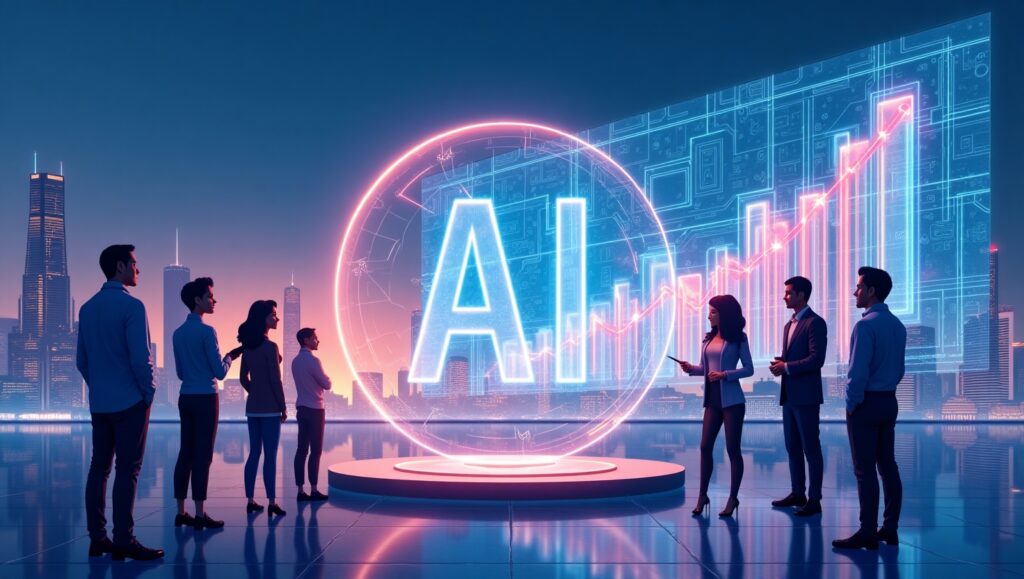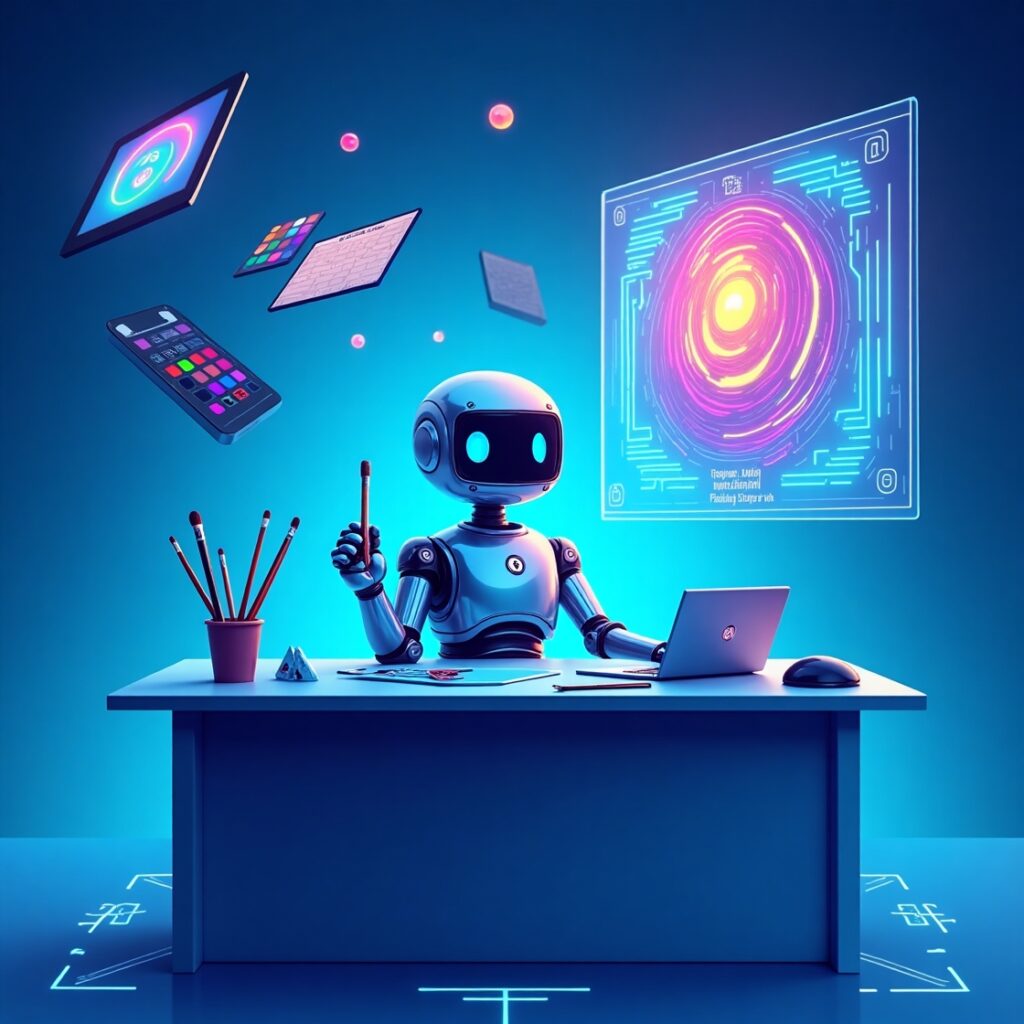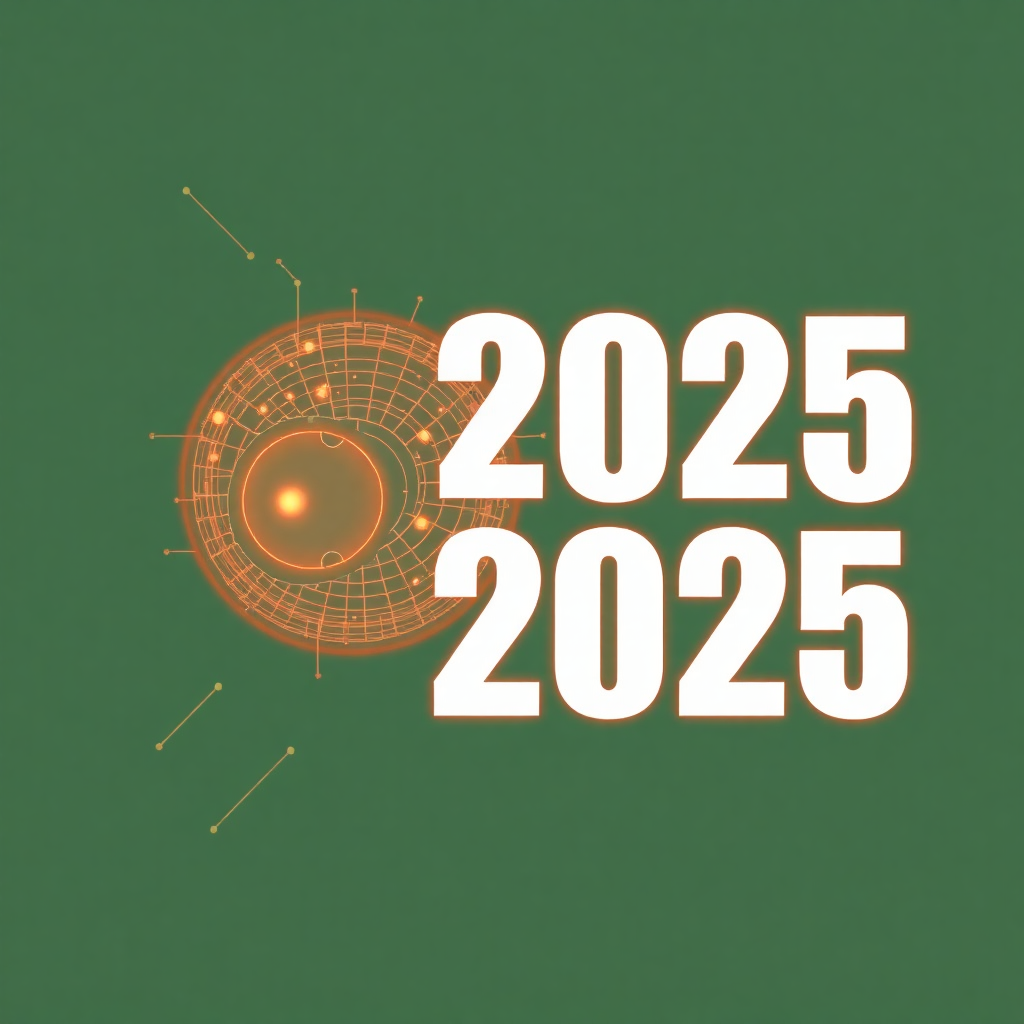The Future of AI in 2025: Trends, Innovations, and Market Impact


Introduction
Artificial Intelligence (AI) is advancing at an astonishing rate, transforming industries and reshaping the way we work, communicate, and solve problems. In 2025, AI will continue to drive innovation in automation, healthcare, cybersecurity, and beyond. Whether you’re a tech enthusiast, a professional, or a business owner, understanding AI’s potential will be essential to staying competitive in this rapidly evolving digital landscape.
AI’s growing capabilities and applications are already making waves across sectors, from streamlining supply chains to revolutionizing healthcare diagnostics. As AI becomes increasingly integrated into everyday life, the need for responsible governance and ethical considerations will be paramount.
This article explores key AI trends, including advancements in hardware, ethical AI governance, and AI’s impact on industries like fintech, SaaS, and automation. Let’s take a look at how AI is shaping the world in 2025 and beyond.
AI Initiatives and Global Leadership
The Global AI Race
Around the world, governments and corporations are making significant investments in AI to stay ahead in the technology race. The United States, China, and the European Union are at the forefront, implementing national AI strategies that focus on research, development, and ethical guidelines. These regions are heavily funding AI research to foster innovation and create competitive advantages in key industries such as finance, healthcare, and manufacturing.
Some key trends in the global AI landscape include:
- Increased AI funding: Countries and private investors are ramping up their AI funding to support cutting-edge research and development. The global AI market is expected to grow from $62.35 billion in 2020 to over $997.77 billion by 2028, with an annual growth rate of over 40%. This surge in funding is driving breakthroughs in deep learning, computer vision, natural language processing (NLP), and more.
- Stronger collaborations: Governments are collaborating with major tech companies to advance AI research. These partnerships enable governments to access cutting-edge technologies while ensuring regulatory measures align with public interests. For example, AI research hubs in Silicon Valley and Beijing are providing platforms for government-driven AI initiatives.
- Stricter AI regulations: Countries are working to implement AI ethics and regulations to ensure that AI technologies are used responsibly. For instance, the European Union has introduced the Artificial Intelligence Act to set standards for AI safety and transparency. As AI becomes more ubiquitous, governments are establishing frameworks to prevent misuse and ensure that AI benefits society as a whole.
Advancements in AI Hardware
Next-Generation AI Processors
The development of AI hardware is crucial for pushing the boundaries of machine learning and deep learning capabilities. In 2025, new advancements in AI chips and neuromorphic computing will significantly enhance AI’s potential.
- Increased computational power: AI hardware like Graphics Processing Units (GPUs) and Tensor Processing Units (TPUs) are already accelerating deep learning tasks. However, the demand for faster and more energy-efficient processing power is pushing companies to develop next-gen processors capable of handling massive datasets and complex algorithms more efficiently. By 2025, we can expect a new wave of neuromorphic chips that replicate the structure of the human brain to enable faster and more energy-efficient processing.
- Real-time AI applications: AI processors will be designed to handle real-time data processing, making AI-enabled applications like financial trading algorithms, healthcare diagnostics, and autonomous vehicles more effective. For example, AI-powered fraud detection systems in financial institutions rely on real-time data to prevent fraudulent transactions before they occur.
- AI-powered robotics and automation: In industries like manufacturing and logistics, AI-driven robots are becoming more autonomous, capable of performing a variety of tasks with minimal human intervention. Advances in hardware will make these robots more cost-effective and reliable, driving increased adoption in sectors that rely on automation.
AI in Healthcare
Transforming Medical Diagnostics and Treatment
AI is revolutionizing the healthcare industry by improving diagnostics, optimizing treatment plans, and enhancing patient care. By 2025, AI will continue to transform medical practices by enabling more accurate diagnoses, faster treatments, and better patient outcomes.
- AI-powered diagnostic tools: AI algorithms are becoming increasingly proficient at analyzing medical data, enabling doctors to detect diseases such as cancer and heart disease at earlier, more treatable stages. AI-powered diagnostic tools, such as imaging analysis software, can identify patterns in medical scans that are often missed by human eyes. This technology is already being used in radiology to detect anomalies in X-rays and MRIs.
- Robotic-assisted surgeries: Robotic surgeries, powered by AI, are becoming more common. These systems enable greater precision and better outcomes in complex surgeries, such as those involving delicate tissues and organs. Robots like da Vinci Surgical Systems can assist surgeons by providing more stable and accurate movements, improving recovery times, and reducing human error.
- AI-driven drug discovery: AI has shown immense promise in accelerating drug discovery. Machine learning algorithms can process vast amounts of medical data, identifying potential compounds for treatment in a fraction of the time it would take traditional methods. Companies like Insilico Medicine are already using AI to develop new drugs and treatments, with a focus on finding cures for diseases like cancer and Alzheimer’s.
AI in Cybersecurity

Strengthening Digital Security
As cyber threats continue to grow in sophistication, AI is becoming an essential tool in cybersecurity. AI-powered security systems are capable of detecting vulnerabilities and neutralizing cyberattacks in real time, minimizing damage and downtime.
- Real-time threat detection: AI-driven cybersecurity systems can identify potential threats in real time by analyzing patterns and behaviors in network traffic. For instance, AI algorithms can detect unusual patterns that indicate a potential cyberattack, such as a DDoS attack or phishing attempt, and automatically trigger defenses to neutralize the threat.
- Automated security responses: With the rise in cyberattacks, automation is critical in reducing response times. AI is already used to automate tasks such as patching software vulnerabilities and blocking malicious IP addresses. By 2025, expect to see even more AI-powered solutions that autonomously respond to cybersecurity incidents, reducing the reliance on human intervention.
- Fraud detection: AI is playing a crucial role in securing digital financial transactions. Machine learning algorithms can analyze transaction data to detect and flag potentially fraudulent activity. For example, AI can analyze a user’s spending habits and alert them if a transaction seems suspicious, such as an unusual location or large amount.
Quantum AI
The Next Leap in Computing Power
Quantum AI is set to revolutionize computing by enabling machines to solve problems far beyond the capabilities of classical computers. By leveraging the principles of quantum mechanics, quantum computers can process information exponentially faster, opening up new possibilities for AI applications.
- Faster machine learning models: Quantum AI will dramatically enhance machine learning capabilities. Traditional computers struggle with large datasets and complex algorithms, but quantum computers can handle these tasks in a fraction of the time. For example, in drug discovery, quantum AI could simulate molecular interactions at a level of detail that was previously impossible, accelerating the development of new treatments.
- Advanced encryption: Quantum computing’s potential to crack traditional encryption methods has raised concerns, but it also offers new opportunities for enhancing cybersecurity. Quantum AI could develop advanced encryption techniques that are virtually impossible to break, offering an unprecedented level of security for sensitive data.
- Real-world applications: While quantum AI is still in its early stages, researchers are already exploring its potential applications. In 2025, we may see the first successful implementation of quantum computing in fields such as logistics optimization, financial modeling, and even weather forecasting.
Ethical AI and Governance
The Importance of Responsible AI
As AI continues to expand, ethical considerations and governance frameworks are becoming more critical than ever. In 2025, the focus will be on ensuring that AI technologies are developed and used responsibly, with transparency and accountability at the forefront.
- Transparent algorithms: AI systems need to be transparent and explainable to ensure that their decision-making processes are understandable to humans. This is particularly important in high-stakes areas like healthcare, finance, and law enforcement. Efforts are already underway to create AI models that can provide explanations for their actions, increasing trust and accountability.
- Data privacy: The rise of AI is creating new challenges in data privacy. With vast amounts of personal data being processed, there are concerns about how this data is stored, used, and shared. Stronger data privacy regulations, such as the General Data Protection Regulation (GDPR) in the EU, will continue to evolve to protect users’ privacy in a world dominated by AI.
- Ethical considerations: The ethical implications of AI are profound, particularly in areas like surveillance, warfare, and autonomous weapons. In 2025, there will likely be a continued debate about the ethical use of AI and how to balance technological advancement with the protection of fundamental human rights.
AI in Content Creation

Revolutionizing Digital Media
AI is already transforming content creation, enabling new forms of storytelling, production, and engagement. By 2025, AI will play an even more significant role in the media and entertainment industries.
- AI-generated content: AI is becoming increasingly proficient at generating text, images, and even video. Natural language processing models like GPT-3 have already demonstrated the ability to write coherent articles, blog posts, and scripts. In 2025, AI will likely produce even more sophisticated content that closely mimics human creativity, from news articles to novels and short films.
- Automated media production: AI-driven tools are already streamlining the production of videos, music, and digital art. For instance, AI algorithms can analyze hours of footage and automatically create a polished video, reducing the time and cost of production. AI is also being used in music composition, with AI systems capable of creating original songs based on user input.
- Personalized experiences: AI is enabling hyper-personalized content recommendations. Streaming platforms like Netflix and Spotify already use AI to recommend movies, shows, and music based on individual preferences. By 2025, AI-powered systems will be even more adept at tailoring content to users’ tastes, creating unique experiences for each viewer.
Conclusion
AI in 2025 is set to revolutionize industries, enhance security, and drive innovation. From healthcare to automation and entertainment, AI’s impact is undeniable. As businesses and individuals continue to embrace AI-driven solutions, ethical considerations and responsible governance will play a crucial role in shaping the future of this transformative technology.
Call to Action
Which AI trends are you most excited about? Share your thoughts in the comments! Don’t forget to subscribe for more insights into AI, fintech, and SaaS trends.



3 thoughts on “The Future of AI in 2025: Trends, Innovations, and Market Impact”